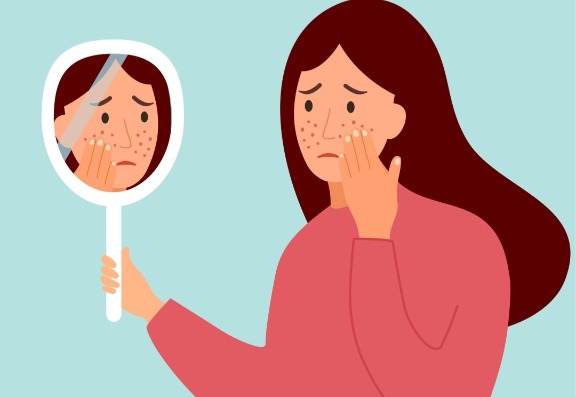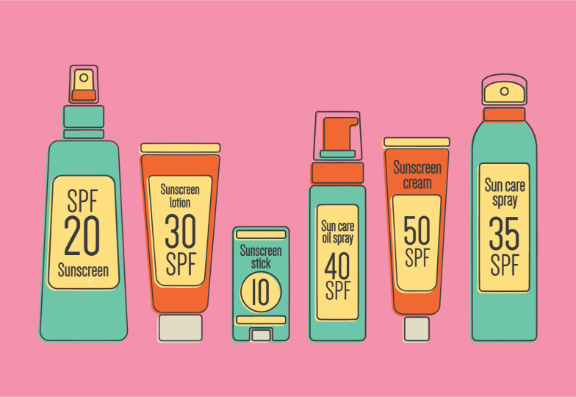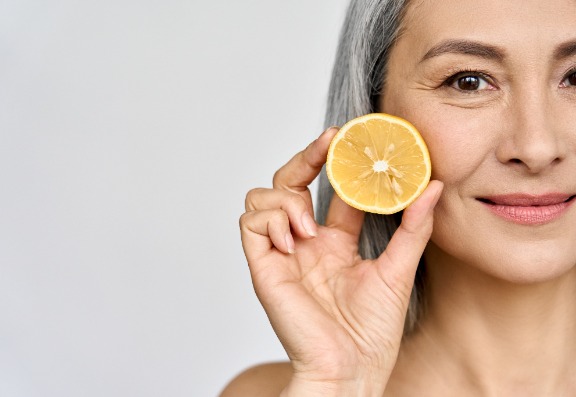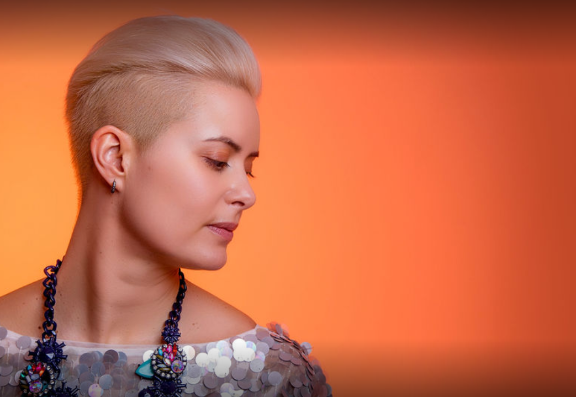Are you just beginning your journey into menopause?
Or are you already struggling with some of the unwanted side effects of this stage of life?
Either way, menopause is often something we avoid talking about – but I think we should change that!
The official definition of when menopause begins is one year after your last period.
It can cause a number of unpleasant reactions in women, and everyone’s experience will be different. We’ve all heard about hot flashes and mood swings but did you know that menopause can also affect both your skin and your hair?
This is because of the changes that happen to your hormone levels: specifically, you begin to produce less oestrogen. This hormone plays a big part in the healthy production of elastin and collagen – meaning, after menopause, the fat underneath your skin begins to diminish, and your skin itself starts to lose its elasticity.
Your skin can start to sag, appear duller, and fine lines and wrinkles will begin to develop more frequently.
Again, this is linked to the changes in your hormones.
Oestrogen and progesterone are responsible for healthy hair growth, so as their levels drop, your hair begins to get thinner and weaker.
Not only that, but hair follicles start to shrink from your mid-40s onwards, and so hair becomes finer with each year.
You might also see other types of skin damage occur more often and more prominently, like age spots, sunspots and other conditions like acne, dryness and sensitive skin.
Unfortunately, it doesn’t stop with your skin.
You might notice your hair beginning to thin – or even come out in clumps – as you progress through menopause.

Find Your Routine
So, what can you do to keep your skin and hair looking healthy?
The outlook might seem bleak, but there are lots of tips and techniques you can try to manage menopausal changes.
Find a regular routine that works for you.
Make sure you wash your face daily, to remove all of that dead and dry skin – but use a gentle, hydrating cleanser that won’t dry your skin out even more. Follow this up with a hydrating moisturiser that is heavy – but not greasy – so that you replenish the moisture your skin loses.
There are specific skin care products with ingredients that can imitate oestrogen when applied topically on your skin, making up for the lack of naturally-produced oestrogen and helping to protect and rejuvenate menopausal skin. However, as your skin adapts to the changes in hormones, you may have to stop using the active ingredient until your skin stabilises.
Ensure your scalp is well hydrated too – and don’t use harmful products with nasty chemicals. Try to avoid heat treatments or dyeing your hair too often, as you might find your scalp is more sensitive and your hair more likely to become brittle and break.

You’ve heard me say it so many times – but it’s so important – use sunscreen!
You should be applying every day, using a broad spectrum, topical SPF, to keep your skin extra protected from sun damage now that it doesn’t heal itself as easily as it did before menopause.
I routinely recommend Skinade to my clients, which is an oral supplement that promotes health from the inside out.
This product is packed with nutrients, vitamins and active ingredients, designed to boost the natural production of collagen and hyaluronic acid in your body.
Top Clinic Treatments
There are also a number of clinical treatments you can try to help rejuvenate your skin.
One of my personal favourites, micro-needling is a minimally invasive treatment that really can work wonders for both your skin and your scalp (you can read more about it in this blog post). It encourages the production of collagen and elastin and increases blood flow, helping your skin repair itself.
Chemical peels can also help to revitalise ageing skin, removing the uppermost dead layer of the epidermis, and promoting the generation of new, healthier skin underneath.
I’ve discussed hair loss in-depth previously, but a tailored approach is always best when it comes to hair loss treatment. The TrichoTest gives you an analysis of the causes – genetic and lifestyle – behind your hair loss.
Once you know the causes, you can work out a tailored treatment journey; as part of this, I often suggest the SkinGenuity home care kit to my clients, which delivers targeted growth factors and natural botanicals directly to the scalp, stimulating hair follicles.
Staying Positive
Of course, it’s always important to eat healthily, exercise regularly and try to relieve stress. Yoga, breathing exercises and meditation can be very beneficial to women going through the ups and downs of menopause.
Make sure you eat well, getting enough grains, fruits and vegetables for fibre, mono-unsaturated fats and essential fatty acids, as well as nutrients like vitamin B6 and folic acid. I personally make sure I get my dose of nutrients using a whole food supplement called Juice Plus.

Your body goes through so many changes during menopause that it’s important to listen carefully to what it needs. Take care of your body, but also your mind; make sure you’re never too afraid to talk about what you’re going through and ask if you need support!
If you want to read more, the experts at Consulting Room really know what they're talking about and have put together some lines and wrinkles, pigmentation, acne, sunscreen, skinade, micro-needling, chemical peels and hair loss treatment FAQs just for you.
If you have more questions, you can use the lines and wrinkles, pigmentation, acne, sunscreen, skinade, micro-needling, chemical peels and hair loss treatment questions feature to talk to our panel of trained medical experts.
If you're keen to get started with any of these treatments right away then you're in luck - those clever folks also have a list of trusted, accredited lines and wrinkles, pigmentation, acne, sunscreen, skinade, micro-needling, chemical peels and hair loss treatment clinics in your area.
Many thanks to the author of this blog Dr Raquel Amado who is from Dr Raquel Skin and Medical Cosmetics.
Throughout her career, Dr Raquel has understood that most people are looking for a reliable, honest relationship with their practitioner, which is why she takes the time to understand how her patients feel.
Dr Raquel is known for her friendly and caring manner, being discreet, and putting her patients at ease.
She is committed to the provision of safe, high-quality patient care in order to achieve the best outcomes for patients, and make them feel confident in their own skin.
Call Dr Raquel Skin and Medical Cosmetics on 01732 525 875 or visit www.skinandmedicalcosmetics.co.uk.

A survey reveals that most people trust dermatologists far more than social media influencers, yet many continue to spend money on treatments that don’t work.
Belotero vs. Juvederm: They are two of the most popular fillers for lip augmentation, but which is the right one for you?
Croma’s latest range brings professional in-clinic results into your everyday routine. Clean, vegan, and packed with powerhouse ingredients, these products are designed to hydrate, brighten, protect, and fight early signs of ageing.
Hey, wait!
Before you go.....
Let's stay in touch, pop your details here and we'll send our editor's hand-picked updates on your fave subjects.